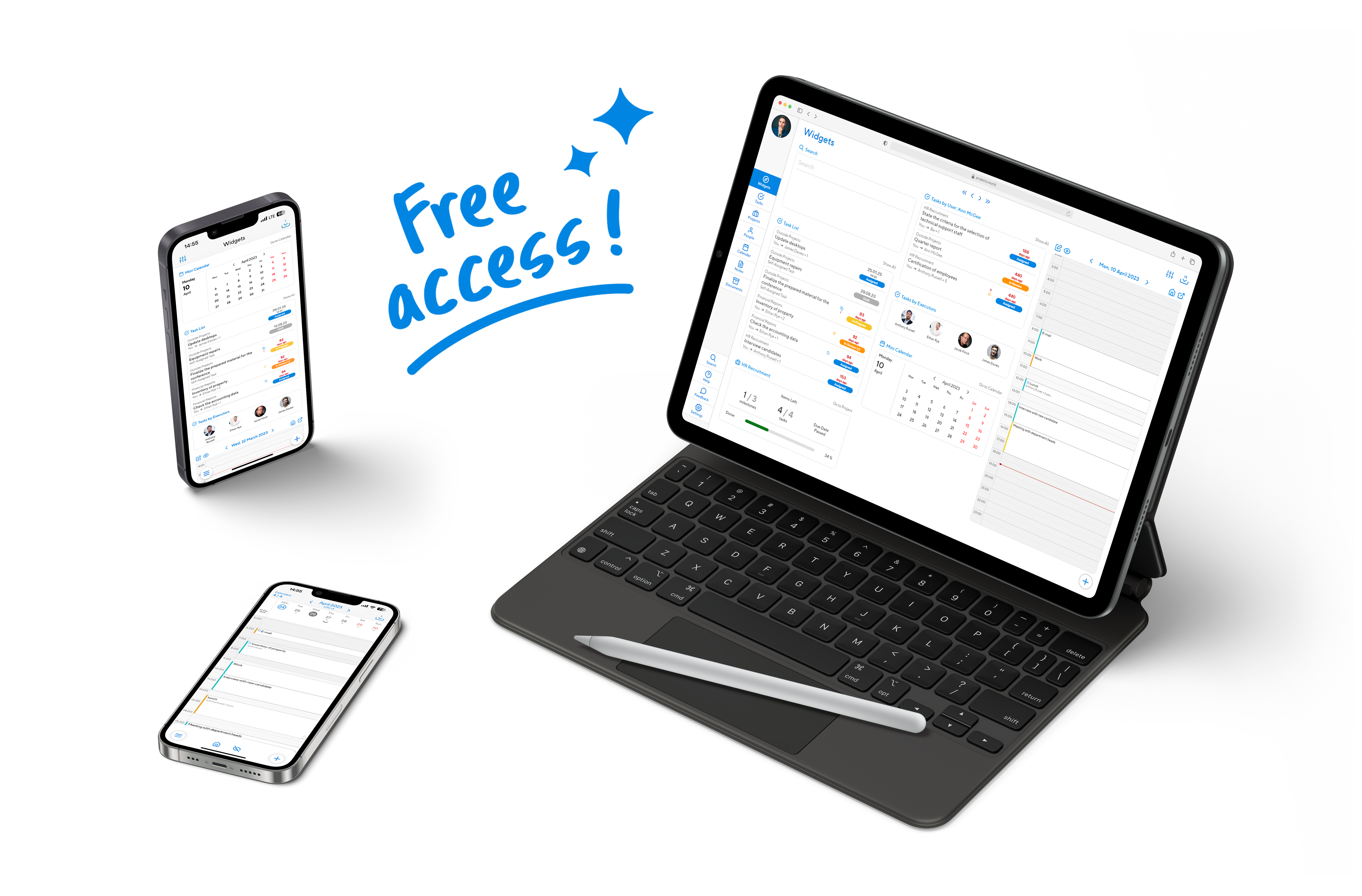In order for the team to work quickly and smoothly and achieve its goals, each participant needs to have a defined area of responsibility and a set of tasks that are strictly related to that role.
One of the key roles is the Project Administrator.
Let’s take a closer look at exactly what a Project Administrator does and is responsible for during the project implementation process.
Who is an administrator in different types of projects?
In fact, it is a separate staff unit that coordinates the work of the whole project. On the one hand, such a function should be part of the manager’s responsibilities. And in many areas it is.
But there are types of project where coordination is a chore. Even in a manager’s work there are many routine tasks. For example, making schedules and plans, project roadmaps, checking the quality of work, keeping reports, creating and updating documentation, making estimates, organising meetings, and so on. All this takes a lot of time.
So an administrator is a kind of assistant manager who can take over most of the routine tasks. At the same time, however, he or she is not an office manager, since the coordination work requires extensive professional experience and qualifications in certain areas.
Main responsibilities of the project administrator
The set of responsibilities can vary significantly depending on the type of project and team composition, as well as the management methodology used (top 10 methodologies).
In a very simplified way, the main functions of an administrator are:
- planning,
- reporting,
- task control,
- organising their performance.
It is also possible to outline responsibilities more formally, for example in job descriptions or by posting on job search websites:
- Ensuring proper communication between team members — collecting feedback, structuring and sorting it, converting it into a single view.
- Coordinate the activities of team members on work issues.
- Communicate with client representatives to ensure timely completion of project tasks.
- Organise meetings and team sessions to discuss work items within the chosen methodology (e.g. Scrum).
- Checking and assisting in the preparation of project documentation.
- Organising tenders, preparing work with a specific supplier or customer. Quality control of documents.
- Recording and taking minutes of meetings — working within the group and/or with the participation of client representatives.
- Preparing and carrying out analytical reports on the project in relation to the chosen period (year, quarter, month, week).
- Uploading documents and contracts to electronic accounting systems.
- Carry out the day to day duties of the Project Manager.
- Assist in the development of plans, tasks, schedules, reporting forms.
- Preparation of financial justifications and development of funding plans, preparation of lists for the purchase of necessary funds and materials.
- Collect reports from line managers.
- Identify problems and risks in the work of the project team.
- Timely correction of plans, deadlines and resource base.
In some cases, employers also include in the project manager’s remit responsibility for logistics (equipping team members’ workstations), organising training and development (if there are systems in place to promote professional development), and preparing rosters (only relevant for very large projects and tasks).
The administrator is therefore the right hand of the project manager. He or she is responsible for providing organisational and technical support for the project, keeping a finger on the pulse, and taking on the task of documenting the project.
Key skills of a project administrator
As mentioned above, an administrator is not just a statistician or assistant manager. Project administrator is a full-fledged team member on whom a lot depends.
Therefore, a project administrator cannot be «just a secretary».
It is no coincidence that people are chosen for the role of coordinator who have:
- Subject-specific higher education. The administrator must be very knowledgeable about the subject. If it is a construction project, they should have first-hand knowledge of the construction phases of large projects. If it is a software project, the administrator must be familiar with the frameworks, programming languages, IDEs, etc.
- Confident mastery of the chosen methodology. If the candidate knows different project management methodologies and their nuances, they will be able to adapt easily to the one already used in the team.
- Experience and confident knowledge of software products used in the job — business process visualisation software, task managers, office software packages, group calendars, BPM systems, etc.
- Excellent communication skills. This is also an important factor when negotiating with client representatives, team members, suppliers, and others.
- Experience in creating and maintaining project documentation — technical documentation, standards, forms, edits, approvals, etc.
What an administrator should not do
They should definitely not be doing other people’s work and redoing things for other team members.
Very often, the administrator is treated as the most disempowered member of the team, being forced to do all the manager’s errands and serve the manager’s work (in a ‘fetch and carry’ format).
But the problem is not in the job description, but in the lack of experience of the line manager, or in the wrong management style. For example, if an authoritarian style is chosen.
In reality, the project administrator should be the first deputy of the manager, ready to take their place in case of their absence. The administrator and the manager should work together. This is the only way for them and the whole team to achieve high results.
